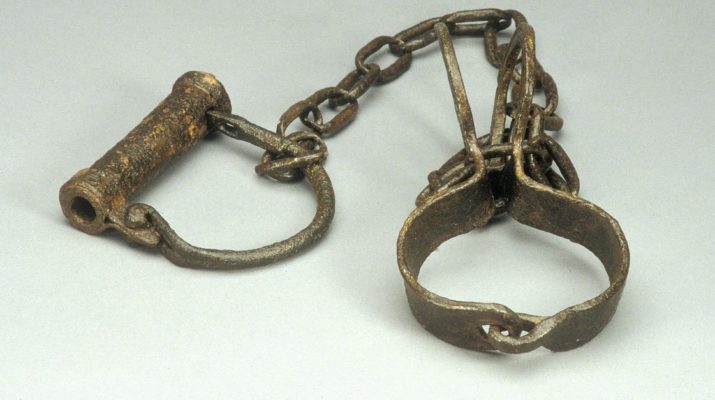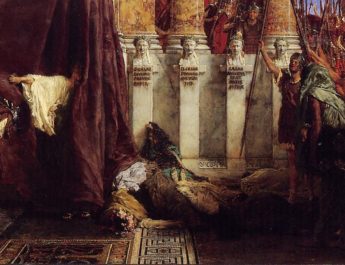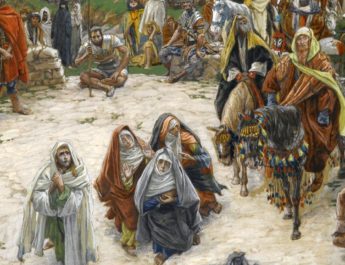2 Timothy 2:8-13
A Women’s Lectionary – Easter Evening
A “remember” = mnemoneuo. From mnemon (mindful) OR from mneme (memory or mention); {from mnaomai (to remember; by implication give reward or consequence) or mimnesko (to remind or remember; memory through an active, intentional process or being mindful; not incidentally or accidentally remembering); or form meno (to stay, abide, wait, endure) or from massaomai (to chew, gnaw); from masso (to knead, squeeze)}. This is to remember, recollect. It does not necessarily imply remembering something that you forgot – it could be simply calling something to mind. It can mean to punish or rehearse.
B “Jesus” = Iesous. From Hebrew Yehoshua (Joshua, the Lord is salvation); {from YHVH (proper name of the God of Israel; the self-existent and eternal one); {from havah (to become) or from hayah (to come to pass, become, be)} + yasha (to deliver, defend, help, preserve, rescue; properly, to be open, wide or free, which implies being safe. So, in a causative sense, this is to free someone)}. This is Jesus or Joshua in Greek – the Lord saves or the Lord is salvation.
C “Christ” = Christos. From chrio (consecrate by anointing with oil; often done for prophets, priests, or kings). Literally, the anointed one, Christ. The Greek word for Messiah.
raisedD from the dead,E a descendantF of DavidG—that is my gospel,H
D “raised” = egeiro. This is to awake, raise up or lift up. It can be to get up from sitting or lying down, to get up from sleeping, to rise from a disease or from death. Figuratively, it can be rising from inactivity or from ruins.
E “dead” = nekros. Perhaps from nekus (corpse). This is dead of lifeless, mortal, corpse. It can also be used figuratively for powerless or ineffective. It is where the word “necrotic” comes from.
F “descendant” = sperma. From speiro (to sow seed, spread, scatter); perhaps from spao (to pull, to draw a sword). This is something sown so it could be seed or offspring and descendants. This is where the word “sperm” comes from.
G “David” = Dauid. From Hebrew David (David); from the same as dod (beloved, love, uncle); the root may mean to boil, which is used figuratively to describe love. So, this implies someone you love such as a friend, a lover, or a close family member like an uncle. David’s name likely means something like “beloved one.”
H “gospel” = euaggelion. From eu (well, good, rightly) + aggelos (angel, messenger; a messenger from God bringing news – whether a prophet or an angel); {from aggellos (to bring tidings); probably from ago (to bring, lead, carry, guide)}. This is literally “the good news,” used for the gospel. This is also where “evangelism” comes from.
9 for which I suffer hardship,I even to the point of being chainedJ like a criminal.K
I “suffer hardship” = kakopatheo. 3x in NT. From the same as kakopatheia (suffering, distress, hardship; undergoing evil); {from kakos (bad, evil, harm, ill; evil that is part of someone’s core character – intrinsic, rotted, worthless, depraved, causing harm; deep inner malice that comes from a rotten character) + pathos (passion, lust, suffering, something that happens to you, strong feelings); {from pascho (to be acted on for good or ill; often used for negative treatment; properly, feeling strong emotions – especially suffering; can also be the ability to feel suffering)}}. This is to experience hardship or evil – to suffer.
J “chained” = desmos. 18x in NT. From deo (to tie, bind, fasten, impel, compel; to declare something against the law or prohibited). This is a chain, bond, infirmity, impediment.
K “criminal” = kakourgos. Related to “suffer hardship” in v9. 4x in NT. From kakos (see note I above) + the same as ergon (word, task, action, employment);{from ergo (to work, accomplish) or from erdo (to do)} This is literally wrongdoer – a criminal, someone who does evil.
But the wordL of GodM is not chained.N
L “word” = logos. From lego (to speak, tell, mention). This is word, statement, speech, analogy. It is a word that carries an idea or expresses a thought, a saying. It could refer to a person with a message or reasoning laid out in words. By implication, this could be a topic, line of reasoning, or a motive. It can be used for a divine utterance or as Word – Christ.
M “God” = Theos. From Proto-Indo-European origins, meaning do, put, place. This is God or a god in general.
N “chained” = deo. Related to “chained” in v9. See note J above.
10 Therefore I endureO everythingP for the sake of the elect,Q
O “endure” = hupomeno. Related to “remember” in v8. 17x in NT. From hupo (by, under, about, subordinate to) + meno (see note A above). This is properly to remain behind or remain under. It implies endurance, patience, steadfastness, enduring trials, and waiting in hope.
P “everything” = pas. This is all or every.
Q “elect” = eklektos. Related to “word” in v9. From eklego (to choose, select, elect); {from ek (from, from out of) + lego (see note L above)}. This is to select or choose. It is making a personal choice – a favorite.
so that they may also obtainR the salvationS that is in Christ Jesus, with eternalT glory.U
R “obtain” = tugchano. 12x in NT. Root means to become ready. This word is to hit, meet, happen, obtain, chance, perhaps. Properly, it means to hit the mark or be spot on. Thus, it is the opposite of the Greek word for sin hamartano, which literally means to miss the mark.
S “salvation” = soteria. From soter (a savior, deliverer); from sozo (to save, heal, preserve, or rescue; taking someone from danger to safety; delivering or protecting literally or figuratively); from sos (safe, rescued, well). This is deliverance, salvation, preservation, welfare, prosperity, safety.
T “eternal” = ainios. From aion (an age, length of time). This is age-long, forever, everlasting. Properly, that which lasts for an age. This is where eon comes from.
U “glory” = doxa. From dokeo (to have an opinion, seem, appear, suppose; a personal judgment; to think); from dokos (opinion). This is literally something that evokes a good opinion – something that connects to our understanding of intrinsic worth. The ultimate expression of this is, of course, God and God’s manifestation. So, this is opinion, honor, and dignity, but also praise, glory, renown, and worship.
11 The sayingV is sure:W
If we have died withX him, we will also live withY him;
V “saying” = logos. Same as “word” in v9. See note L above.
W “sure” = pistos. From peitho (to have confidence, urge, be persuaded, agree, assure, believe, have confidence, trust). This is faithful, trustworthy, reliable, sure, or true. It is a fullness of faith. This is the same root as the word “faith” in Greek.
X “died with” = sunapothnesko. 3x in NT. From sun (with, together with) + apothnekso (to die off; death with an emphasis on the way that death separates; to wither or decay); {from apo (from, away from) + thnesko (to die, be dead)}. This is to die with or similarly to.
Y “live with” = suzao. 3x in NT. From sun (with, together with) + zao (to live literally or figuratively). This is to live with, co-survive, live together.
12 if we endure, we will also reign withZ him;
if we denyAA him, he will also deny us;
13 if we are faithless,BB he remainsCC faithfulDD—
for he cannotEE deny himself.
Z “reign with” = sumbasileuo. 2x in NT. From sun (with, together with) + basileuo (to reign as king, to rule in a literal or figurative sense); {from basileus (king, emperor, sovereign); probably from basis (step, hence foot; a pace); from baino (to walk, to go)}. This is to reign with, be a co-regent.
AA “deny” = arneomai. From a (not) + rheo (say, speak of). This is to deny, disown, refuse, repudiate someone or a previously held belief, to contradict.
BB “are faithless” = apisteo. Related to “sure” in v11. 8x in NT. From apistos (unbelieving, incredulous, faithless; someone who rejects faith); {from a (not, without) + pistos (see note W above)}. This is to intentionally disbelieve, prove false. It can be one who has never believed or a believer who goes astray.
CC “remains” = meno. Related to “remember” in v8 & “endure” in v10. See note A above.
DD “faithful” = pistos. Same as “sure” in v11. See note W above.
EE “cannot” = ou + dunamai. Dunamai is to be able, or something that is possible. It can also be empowered or being powerful. The Greek word for “miracle” (dunamis) comes from this root.
Image credit: “Slave Shackles” by National Museum of American History, Smithsonian Institution, 2013.




